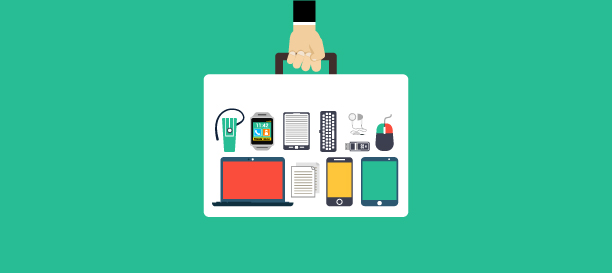BYOD=Bring your own disaster?

BYOD=Bring your own disaster?
Workplaces today have changed. They extend beyond the working hours, beyond the cubicles. Whether you are commuting to work or even vacationing, chances are you or your employees take a break from the break to reply to those important emails that require ‘immediate action’. Plus, there may even be employees who are not even on the same continent as you. What does all this mean for your business in terms of IT security? Does BYOD translate to bring your own disaster to work? This blog explores the risks of BYOD culture and offers tips on how you can avoid them.
When you adopt a BYOD culture at your business, you are opening the virtual floodgates to all kind of malwares and phishing attacks. Your employee may be storing work-related data on their personal devices and then clicking a malicious link they received on their personal email or (even whatsapp in case of tablets or smartphones) and put your entire network at risk. Secondly, you cannot control how your employees use their personal devices. They may connect to unauthorized networks, download unauthorized software programs, use outdated antivirus programs etc,. Even something as simple and harmless as the free wifi at the mall can spell danger for your data.
What you can do?
First of all, if you have decided to adopt the BYOD culture in your organization, ensure you have a strong BYOD policy in place. It should cover the dos and don’ts and define boundaries and responsibilities related to the BYOD environment.
It also makes sense for you to invest in strong antivirus software and mandate those employees following the BYOD model to install it. You can also conduct device audits to ensure your employee’s personal devices are up-to-date in terms of software, security and firewall requirements to the extent that they are safe to be used for work purpose.
And one of the most important aspects–train your employees on the best practices related to basic data security, access and BYOD environments. This will ensure that they don’t make mistakes that prove costly to you. You can conduct mock drills, tests and certifications and provide the BYOD privilege to only those who clear your tests. You could also use positive and negative reinforcements to ensure everyone takes it seriously.
BYOD is great in terms of the flexibility it lends to both–the employer and the employee, and the trend is here to stay. It is up to businesses to ensure it helps more than it can hurt.

